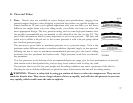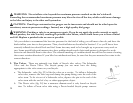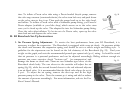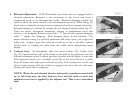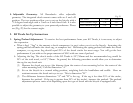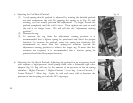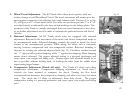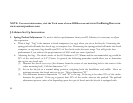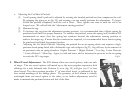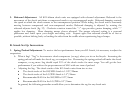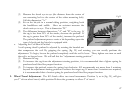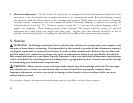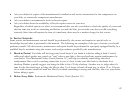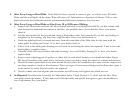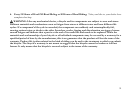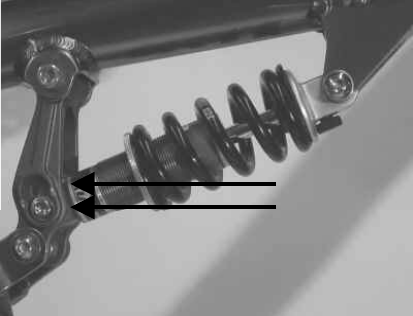
47
(1) Measure the shock eye-to-eye (the distance from the center of
one mounting bolt to the center of the other mounting bolt).
Call this dimension “A.”
(2) Sit on the bicycle in a normal riding position, weighting both
the handlebars and saddle. Have an assistant measure the
shock unit eye-to-eye. This is dimension “B.”
(3) The difference between dimensions “A” and “B” is the sag. If
the sag is less than 25% of the stroke, decrease the preload. If
the sag is greater than 25% of the stroke), increase the preload.
The preload adjustment process varies a bit depending upon the
type of shock unit the bicycle is equipped with.
c. Adjusting the Coil Shock Preload.
A coil-sprung shock’s preload is adjusted by rotating the knurled nut
that compresses the coil. By gripping the spring (fig. 30) and rotating, you can usually perform the
adjustment. To begin, loosen the preload completely until the coil is loose. Then, tighten one turn or until
the coil is no longer loose. We will call this the “adjustment starting position.”
(1) Measure the sag.
(2) To increase the sag from the adjustment starting position, it is recommended that a lighter spring be
purchased and fitted for proper function.
(3) To increase the preload, rotate the spring/nut clockwise. K2 recommends not more than 5 rotations
beyond the adjustment starting position to achieve the target sag. If more than 5 rotations are required,
it is recommended that a heavier spring be purchased and fitted for proper function.
2. Wheel Travel Adjustment. The K2 Attack offers two travel increments. Position A, as in (fig. 35), will give
you 3” of rear wheel travel, while position B alters the geometry to allow 4” of travel.
T
ravel Positions (A shown)
B/4”
A
/3”
Fig35



